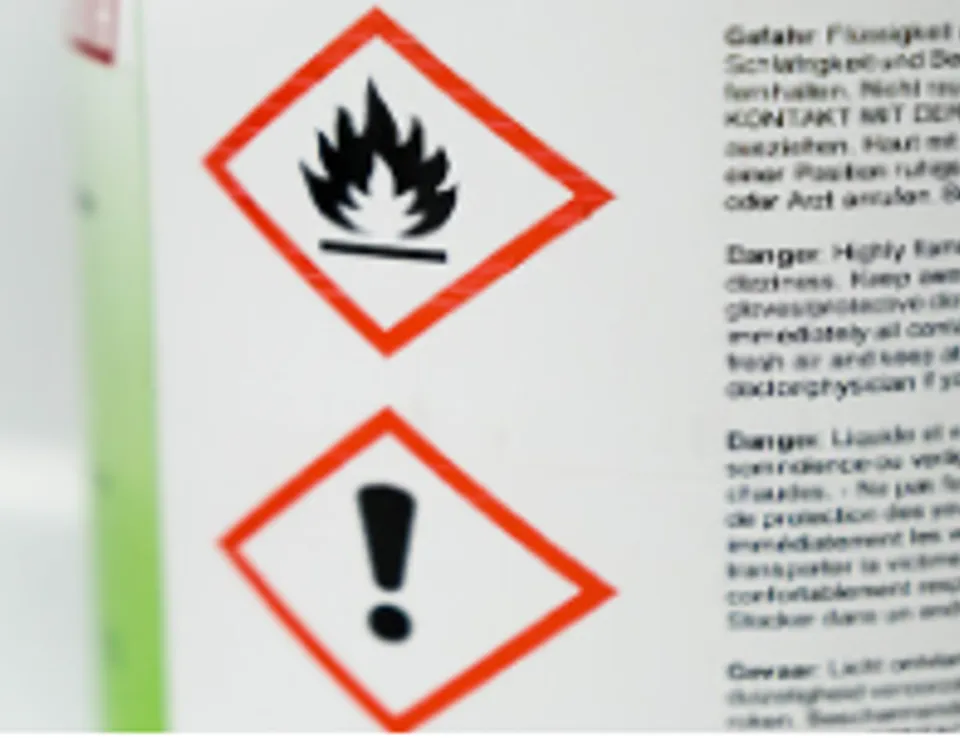
End of the Poison Centre Transition Period: are you ready for what’s next?
24 Jan 2025
The final compliance date for the European Union's Poison Centre Notification (PCN) requirements under Annex VIII of the Classification, Labelling, and Packaging (CLP) Regulation passed on January 1st 2025. All companies placing hazardous mixtures on the market are now obligated to ensure their compliance with these rules, which are designed to enhance consumer safety and provide critical information to poison centres in case of emergencies.
Is your business compliant?
Businesses must ensure all their notifications for any mixture classified as hazardous for human and/or physical health are completed in the harmonised format via the ECHA notification portal, and that a Unique Formula Identifier (UFI) has been generated for their product(s) and added to labels and SDSs as required. Ensuring your products are appropriately notified, and updated is a crucial part of maintaining your market access, protecting your reputation with customers and key stakeholders within each Member State and streamlining the movement of your goods.
Enforcement
ECHA’s Enforcement Forum
ECHA’s Enforcement Forum announced in early 2024 that it is preparing an enforcement project to check if suppliers have notified hazardous chemical mixtures to Poison Centres in accordance with Annex VIII to CLP.
The REF-14 project will be prepared in 2025 and inspections are expected in 2026, where checks will establish if suppliers are fulfilling their duties under the CLP regulation, including:
- Classification and labelling
- Packaging and child resistant fastening
- Poison Centre Notifications
- Safety data sheets of the mixtures
Local Enforcement
With regards to local enforcement Article 47 of CLP states:
“Member States shall introduce penalties for non-compliance with this Regulation and shall take all measures necessary to ensure that this Regulation is applied. The penalties must be effective, proportionate and dissuasive”.
Member-states each have their own regulations that determine what enforcement looks like and this varies from fines to imprisonment for non-compliance.
Ricardo works closely with the Poison Centres and we see a pattern of Poison Centres reviewing notifications more frequently, contacting the submitter directly in the case of non-compliances. This process can be time consuming for businesses to manage as they are required to review requests, understand the changes required and update the notification.
Partnering with Ricardo can remove this stress as our experts can achieve and maintain your Poison Centre compliance. Our team will ensure your notifications are successfully submitted and support with any queries the Poison Centre may have with regards to your notifications.
Global Poison Centre Compliance
While the EU's deadline has passed, it is essential for businesses operating globally to note that other regions are also implementing poison centre notification requirements. For example, in the Ukraine and The Republic of Türkiye, regulations are evolving to align with European standards, emphasizing the need for businesses to prepare for similar requirements.
Additionally, several countries have implemented voluntary notification systems including but not limited to:
- Australia
- New Zealand
- USA
- South Africa
Benefits of Voluntary PCN Participation
For businesses, voluntarily submitting information can:
- Enhance consumer trust by demonstrating commitment to safety.
- Reduce liability risks in cases of chemical exposure incidents.
- Improve emergency response efficiency by equipping poison centres with accurate data.
By engaging with these voluntary systems, companies can stay ahead of evolving regulatory trends, especially as more jurisdictions move toward mandatory frameworks. Ricardo can support companies in reviewing their chemicals portfolio, assessing the potential need for Poison Centre Notifications and completing submissions in required regions.
The global shift toward enhanced chemical safety highlights the importance of a comprehensive compliance strategy. Companies should treat poison centre notifications as a core component of their regulatory obligations, not only in the EU but also in other jurisdictions adopting similar measures. With regulators increasingly focused on protecting public health and safety, ensuring compliance now will safeguard against potential disruptions, legal risks, and reputational harm in the future. The time to act is now—before enforcement actions catch businesses unprepared.
Staying ahead of these changes will be critical for businesses aiming to maintain uninterrupted market access.
Support for your business
Speak to our regulatory compliance experts today to ensure your organisation is not at risk of fines, penalties, or loss of market access.




 Follow Ricardo Chemical Solutions for regular updates
Follow Ricardo Chemical Solutions for regular updates





